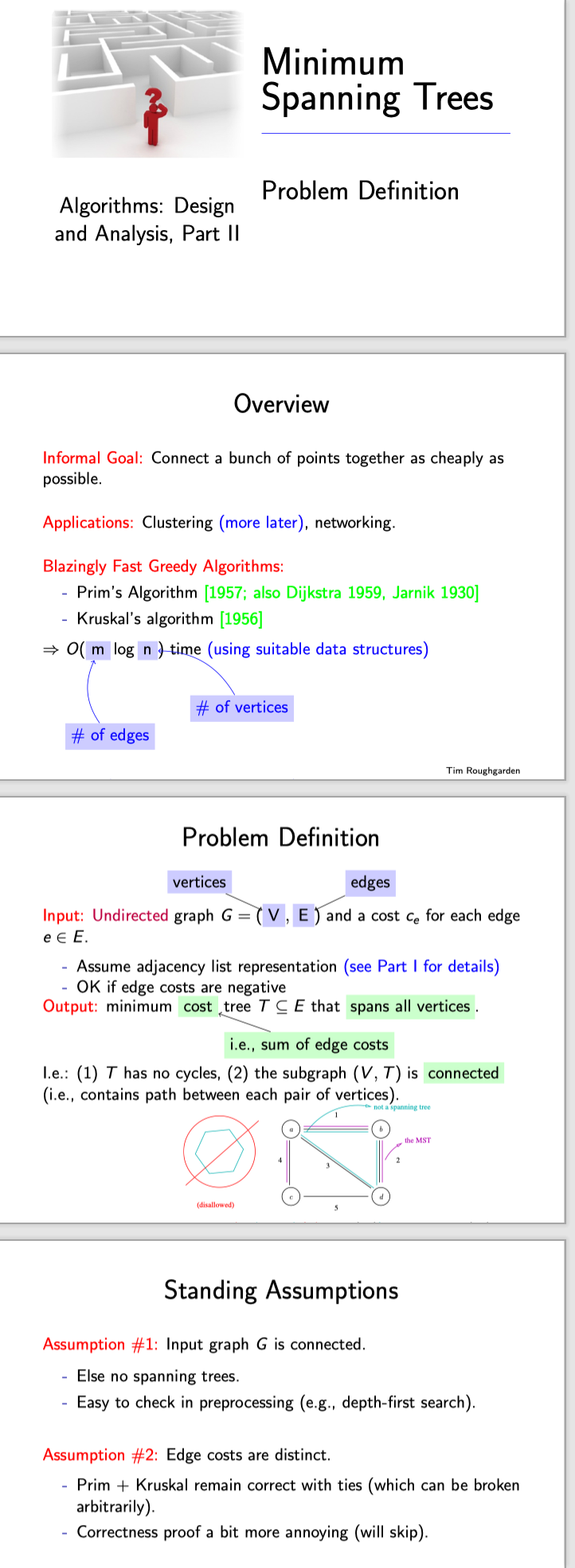-
INTRODUCTION [Chapter 17]
-
Overview, Resources, and Policies
-
Pre-Course Survey
-
All Lecture slides
-
-
TWO MOTIVATING APPLICATIONS [Chapter 18]
-
Overview
-
Application: Internet Routing (10 min)
-
Application: Sequence Alignment (8 min)
-
-
INTRODUCTION TO GREEDY ALGORITHMS [Chapter 19]
-
Introduction to Greedy Algorithms (12 min)
-
Application: Optimal Caching (10 min)
-
-
A SCHEDULING APPLICATION [Chapter 20]
-
Problem Definition (5 min)
-
A Greedy Algorithm (12 min)
-
Correctness Proof - Part I (6 min)
-
Correctness Proof - Part II (4 min)
-
Handling Ties [Advanced - Optional] (7 min)
-
-
PRIM'S MINIMUM SPANNING TREE ALGORITHM [Chapter 21]
-
MST Problem Definition (11 min)
-
Prim's MST Algorithm (7 min)
-
Correctness Proof I (15 min)
-
Correctness Proof II (8 min)
-
Proof of Cut Property [Advanced - Optional] (11 min)
-
Fast Implementation I (14 min)
-
Fast Implementation II (9 min)
-
-
Homework 1
-
Problem Set 1Problem Set
-
Optional Theory Problems
-
Programming Assignment 1Programming AssignmentThis is your last visited course section.Resume Course
-
-
KRUSKAL'S MINIMUM SPANNING TREE ALGORITHM [Chapter 22]
-
Overview
-
Kruskal's MST Algorithm (7 min)
-
Correctness of Kruskal's Algorithm (9 min)
-
Implementing Kruskal's Algorithm via Union-Find I (9 min)
-
Implementing Kruskal's Algorithm via Union-Find II (13 min)
-
MSTs: State-of-the-Art and Open Questions [Advanced - Optional] (9 min)
-
-
CLUSTERING [Chapter 23]
-
Application to Clustering (11 min)
-
Correctness of Clustering Algorithm (9 min)
-
-
ADVANCED UNION-FIND [Chapter 24]
-
Lazy Unions [Advanced - Optional] (10 min)
-
Union-by-Rank [Advanced - Optional] (12 min)
-
Analysis of Union-by-Rank [Advanced - Optional] (14 min)
-
Path Compression [Advanced - Optional] (14 min)
-
Path Compression: The Hopcroft-Ullman Analysis I [Advanced - Optional] (9 min)
-
Path Compression: The Hopcroft-Ullman Analysis II [Advanced - Optional] (11 min)
-
The Ackermann Function [Advanced - Optional] (16 min)
-
Path Compression: Tarjan's Analysis I [Advanced - Optional] (14 min)
-
Path Compression: Tarjan's Analysis II [Advanced - Optional] (13 min)
-
-
HUFFMAN CODES [Chapter 25]
-
Introduction and Motivation (9 min)
-
Problem Definition (10 min)
-
A Greedy Algorithm (16 min)
-
A More Complex Example (4 min)
-
Correctness Proof I (10 min)
-
Correctness Proof II (12 min)
-
-
Homework 2
-
Problem Set 2Problem Set
-
Optional Theory Problems
-
Programming Assignment 2Programming Assignment
-
-
INTRODUCTION TO DYNAMIC PROGRAMMING [Chapter 26]
-
Overview
-
Introduction: Weighted Independent Sets in Path Graphs (7 min)
-
WIS in Path Graphs: Optimal Substructure (9 min)
-
WIS in Path Graphs: A Linear-Time Algorithm (9 min)
-
WIS in Path Graphs: A Reconstruction Algorithm (6 min)
-
Principles of Dynamic Programming (7 min)
-
-
THE KNAPSACK PROBLEM [Chapter 27]
-
The Knapsack Problem (9 min)
-
A Dynamic Programming Algorithm (9 min)
-
Example [Review - Optional] (12 min)
-
-
SEQUENCE ALIGNMENT [Chapter 28]
-
Optimal Substructure (13 min)
-
A Dynamic Programming Algorithm (12 min)
-
-
OPTIMAL BINARY SEARCH TREES [Chapter 29]
-
Problem Definition (12 min)
-
Optimal Substructure (9 min)
-
Proof of Optimal Substructure (6 min)
-
A Dynamic Programming Algorithm I (9 min)
-
A Dynamic Programming Algorithm II (9 min)
-
-
Homework 3
-
Problem Set 3Problem Set
-
Optional Theory Problems
-
Programming Assignment 3Programming Assignment
-
-
THE BELLMAN-FORD ALGORITHM: [Chapter 30]
-
Overview
-
Single-Source Shortest Paths, Revisited (10 min)
-
Optimal Substructure (10 min)
-
The Basic Algorithm I (8 min)
-
The Basic Algorithm II (10 min)
-
Detecting Negative Cycles (9 min)
-
A Space Optimization (12 min)
-
Internet Routing I [Optional] (11 min)
-
Internet Routing II [Optional] (6 min)
-
-
ALL-PAIRS SHORTEST PATHS [Chapter 31]
-
Problem Definition (7 min)
-
Optimal Substructure (12 min)
-
The Floyd-Warshall Algorithm (13 min)
-
A Reweighting Technique (14 min)
-
Johnson's Algorithm I (11 min)
-
Johnson's Algorithm II (11 min)
-
-
Homework 4
-
Problem Set 4Problem Set
-
Optional Theory Problems
-
Programming Assignment 4Programming Assignment
-
-
NP-COMPLETE PROBLEMS [Chapter 32]
-
Overview
-
Polynomial-Time Solvable Problems (14 min)
-
Reductions and Completeness (13 min)
-
Definition and Interpretation of NP-Completeness I (10 min)
-
Definition and Interpretation of NP-Completeness II (7 min)
-
The P vs. NP Question (9 min)
-
Algorithmic Approaches to NP-Complete Problems (12 min)
-
-
FASTER EXACT ALGORITHMS FOR NP-COMPLETE PROBLEMS [Chapter 33]
-
The Vertex Cover Problem (8 min)
-
Smarter Search for Vertex Cover I (9 min)
-
Smarter Search for Vertex Cover II (7 min)
-
The Traveling Salesman Problem (14 min)
-
A Dynamic Programming Algorithm for TSP (12 min)
-
-
Homework 5
-
Problem Set 5Problem Set
-
Optional Theory Problems
-
Programming Assignment 5Programming Assignment
-
-
APPROXIMATION ALGORITHMS FOR NP-COMPLETE PROBLEMS [Chapter 34]
-
Overview
-
A Greedy Knapsack Heuristic (14 min)
-
Analysis of a Greedy Knapsack Heuristic I (7 min)
-
Analysis of a Greedy Knapsack Heuristic II (9 min)
-
A Dynamic Programming Heuristic for Knapsack (11 min)
-
Knapsack via Dynamic Programming, Revisited (10 min)
-
Analysis of Dynamic Programming Heuristic (15 min)
-
-
LOCAL SEARCH ALGORITHMS [Chapter 35]
-
The Maximum Cut Problem I (8 min)
-
The Maximum Cut Problem II (9 min)
-
Principles of Local Search I (8 min)
-
Principles of Local Search II (10 min)
-
The 2-SAT Problem (14 min)
-
Random Walks on a Line (16 min)
-
Analysis of Papadimitriou's Algorithm (14 min)
-
-
THE WIDER WORLD OF ALGORITHMS [Chapter 36]
-
Stable Matching [Optional] (15 min)
-
Matchings, Flows, and Braess's Paradox [Optional] (13 min)
-
Linear Programming and Beyond [Optional] (11 min)
-
Epilogue (1 min)
-
-
Homework 6
-
Problem Set 6Problem Set
-
Optional Theory Problems
-
Programming Assignment 6Programming Assignment
-
-
Final Exam
-
Final ExamFinal Exam
-
-
Finishing Up
-
Post-Course Survey
-
Generate Your Statement of Accomplishment
-
Important Course Dates
Today is Mar 14, 2019 18:26 EDT
Course Handouts
https://github.com/SSQ/Coursera-Stanford-Algorithms-Specialization
03/14/2019 Last few days:
https://www.youtube.com/playlist?list=PLXFMmlk03Dt5EMI2s2WQBsLsZl7A5HEK6
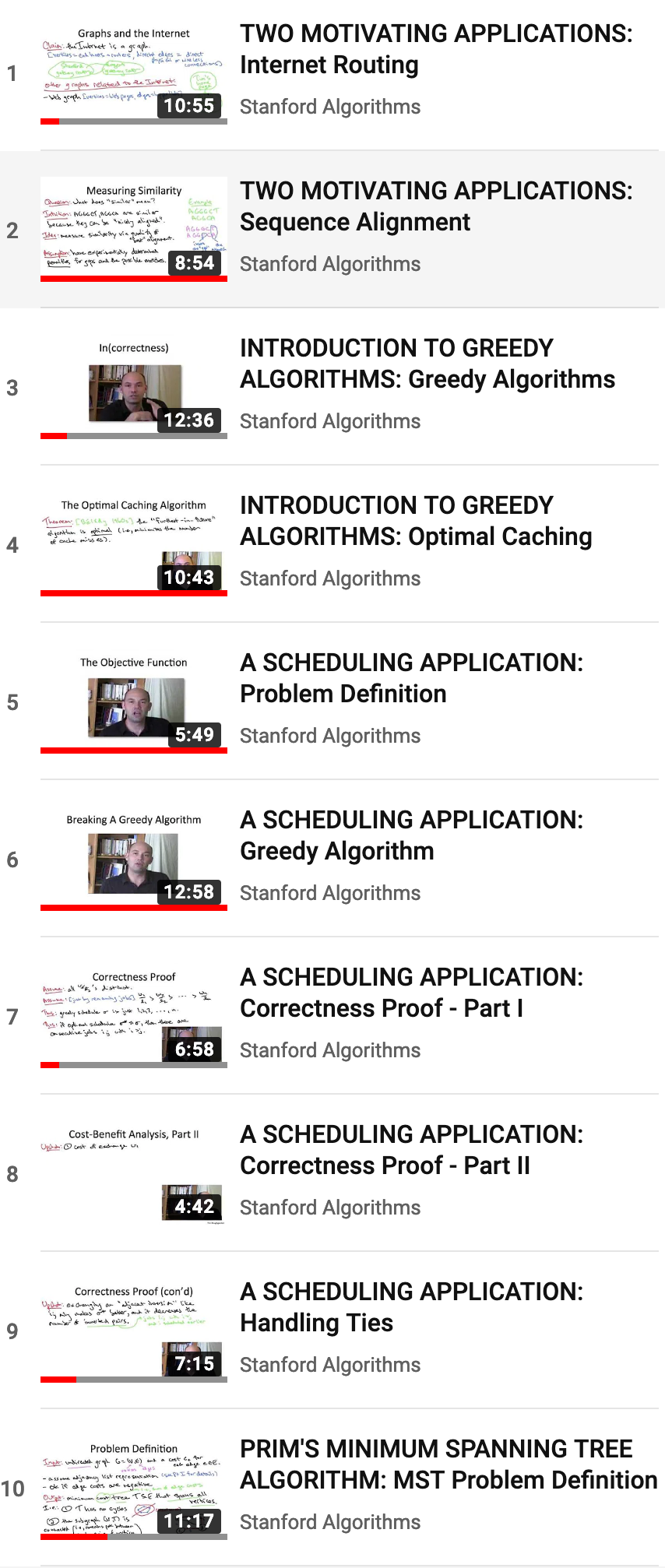
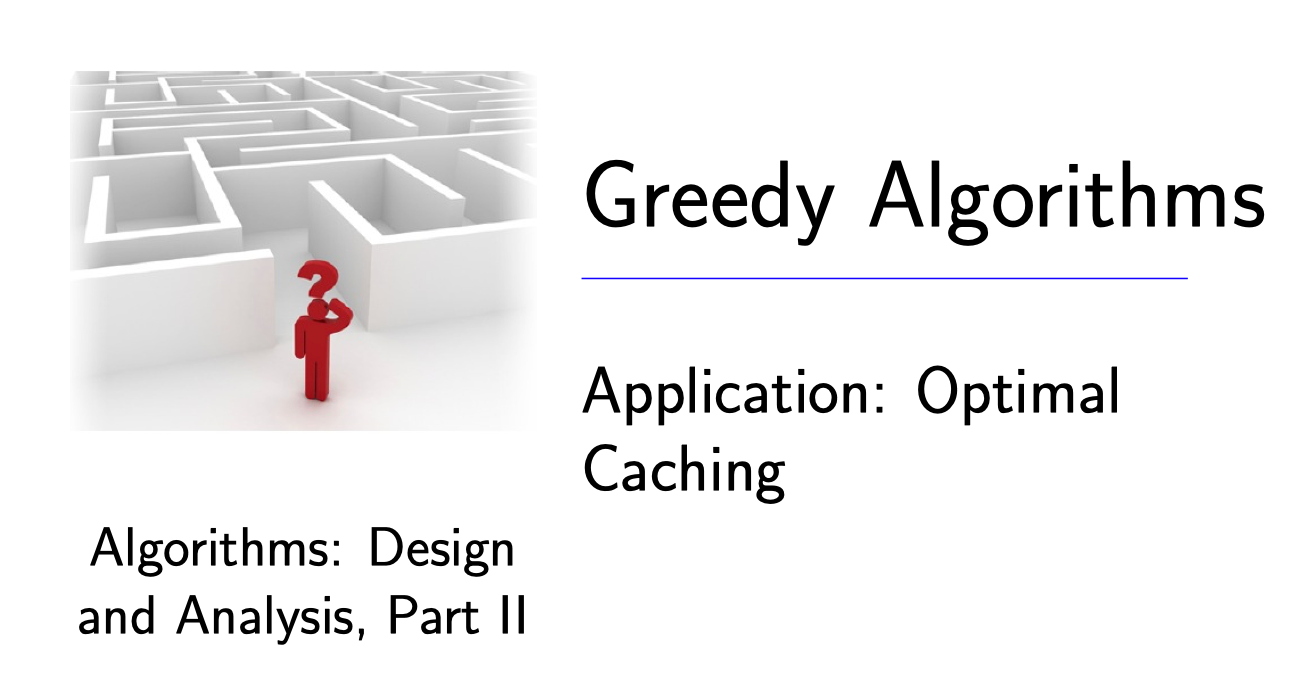
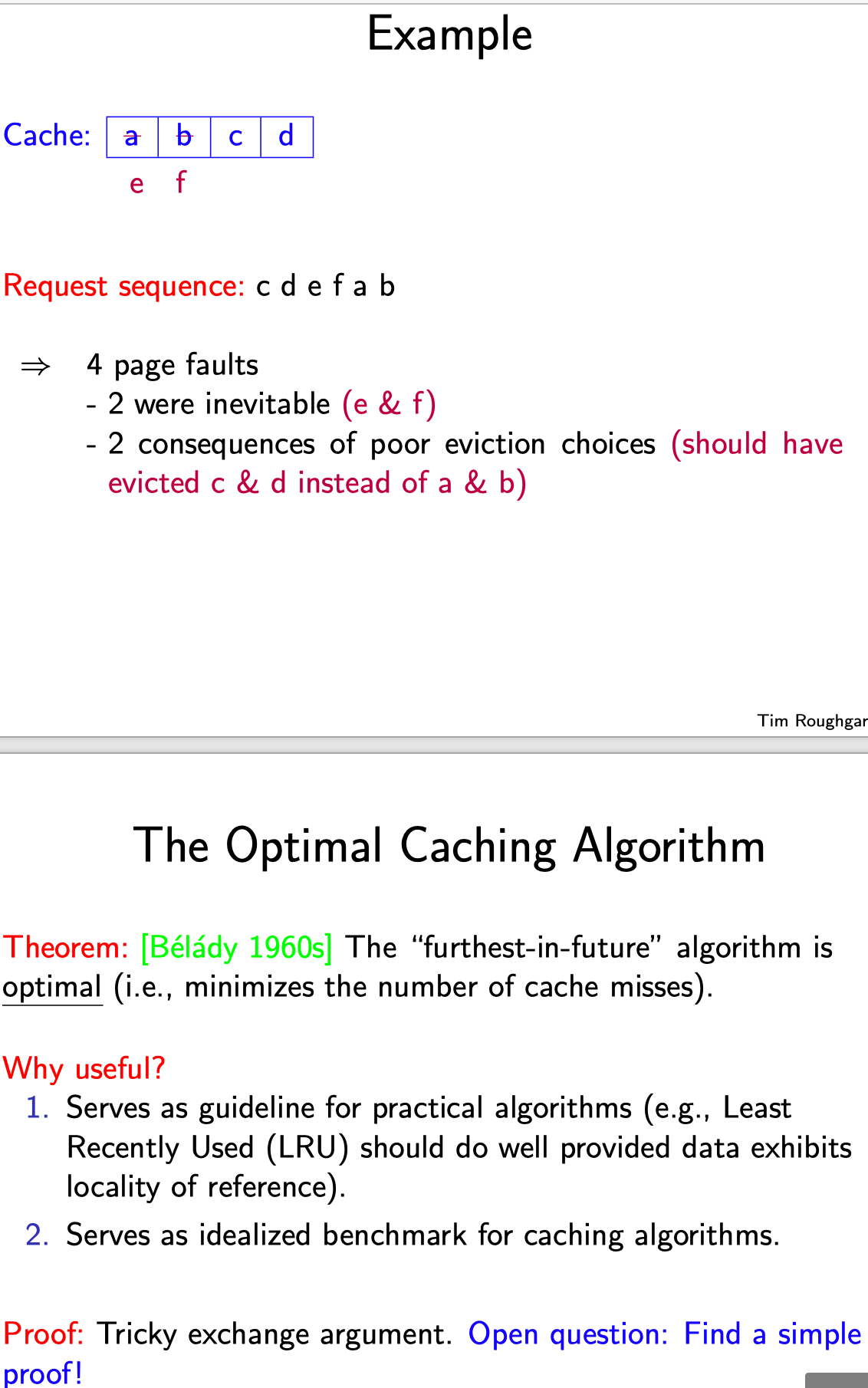
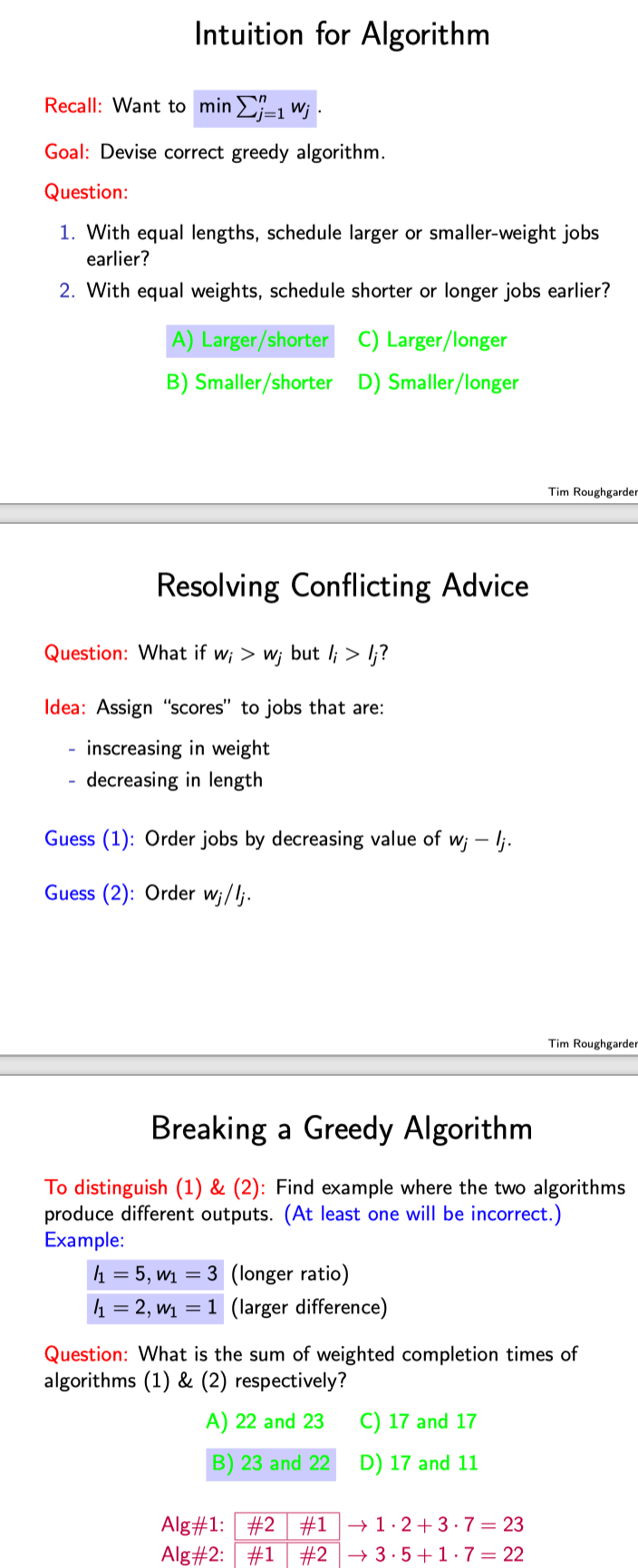
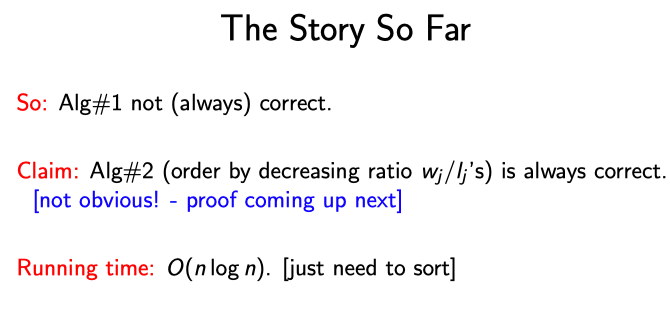
Minimum spanning tree:
https://www.cnblogs.com/infroad/p/9245794.html
